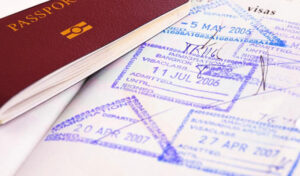Marriage in Thailand is a significant legal, cultural, and personal milestone. Known for its unique blend of tradition and modernity, the Thai marriage process incorporates both customary practices and legal formalities. Understanding the requirements, procedures, and legal implications of marriage in Thailand is essential for both Thai citizens and foreigners planning to tie the knot in this beautiful country.
Marriage Laws in Thailand
Marriage in Thailand is governed by the Civil and Commercial Code (CCC). It outlines the legal requirements, obligations, and rights of spouses. A legally registered marriage provides the couple with protection under Thai law and establishes rights and duties regarding property, inheritance, and family matters.
Types of Marriages in Thailand
- Traditional Thai Marriage
- A traditional Thai wedding involves cultural rituals and religious ceremonies.
- It often includes a monk blessing, a water-pouring ceremony (Rod Nam Sang), and the presentation of a dowry (Sin Sod).
- This type of marriage is not legally binding unless registered with the local district office.
- Legal Marriage Registration
- The only legally recognized form of marriage in Thailand is one that is registered at the local district office (Amphur).
- A legal marriage provides official status and rights under Thai law.
Requirements for Marriage in Thailand
- Eligibility Criteria
- Both parties must be at least 17 years old. If one or both parties are under 20, parental consent is required.
- Neither party should be currently married to another person.
- Both parties must be of sound mind and able to consent to the marriage.
- Documents Required
- For Thai Nationals:
- Identification card and household registration book (Tabien Baan).
- Proof of marital status (if previously married, provide a divorce or death certificate of the former spouse).
- For Foreign Nationals:
- Passport and visa.
- An Affirmation of Freedom to Marry, obtained from the individual’s embassy and translated into Thai.
- Translation of relevant documents and legalization at the Thai Ministry of Foreign Affairs.
- For Thai Nationals:
- Pre-Marital Health Check
- While not mandatory, some couples choose to undergo a pre-marital health check to ensure compatibility and health safety.
Marriage Registration Process
- Visit the Amphur Office
- Both parties must appear in person at the local district office to register the marriage.
- Bring all required documents and translations.
- Complete the Application
- Submit the application form along with supporting documents.
- Officials will review and verify the information.
- Marriage Certificate
- Upon successful registration, the couple receives an official marriage certificate (Ta-Bian Somrot).
Special Considerations for Foreign Nationals
- Affirmation of Freedom to Marry
- This document confirms that the foreigner is single and free to marry.
- It must be obtained from the individual’s embassy in Thailand and legalized by the Ministry of Foreign Affairs.
- Language Barrier
- Non-Thai speakers may require an interpreter or a legal advisor to navigate the process.
- Prenuptial Agreements
- If the couple wishes to establish a prenuptial agreement, it must be registered simultaneously with the marriage.
- The agreement must be in writing and signed by both parties.
Same-Sex Marriage in Thailand
As of now, same-sex marriage is not legally recognized in Thailand. However, the country is known for its progressive attitudes toward LGBTQ+ individuals, and discussions about legalizing same-sex marriage are ongoing. Couples may explore other options, such as cohabitation agreements, to formalize their relationships.
Cultural Aspects of Thai Marriage
- Sin Sod (Dowry)
- The dowry is a traditional practice where the groom provides a monetary or material gift to the bride’s family.
- It symbolizes respect and the groom’s ability to provide for the bride.
- Traditional Ceremonies
- A monk blessing ceremony is often conducted for good fortune.
- The water-pouring ritual, where elders pour water over the couple’s hands, signifies blessings for the marriage.
- Engagement and Courtship
- Engagements are typically formalized through a ceremony involving both families.
Legal Implications of Marriage in Thailand
- Property and Finances
- Marital property, known as Sin Somros, includes assets acquired during the marriage and is equally divided in the event of divorce in Thailand.
- Personal property (Sin Suan Tua) remains with the original owner.
- Spousal Rights and Obligations
- Spouses are obligated to support each other financially and morally.
- Both parties have equal rights in managing marital property.
- Inheritance
- A legally registered spouse is entitled to inheritance under Thai law.
Challenges and Tips for Couples
- Document Preparation
- Ensure all documents are complete and properly translated to avoid delays.
- Legal Assistance
- Seek legal advice, especially for mixed-nationality marriages, to ensure compliance with Thai laws.
- Cultural Sensitivity
- Respect Thai customs and traditions, especially when planning a traditional wedding.
- Language Barriers
- Consider hiring a translator or interpreter if neither party speaks Thai fluently.
Benefits of Legal Marriage Registration
- Legal Protection
- Registered marriages ensure the rights of both parties are protected under Thai law.
- Recognition
- A legally registered marriage is recognized internationally.
- Family Benefits
- A registered marriage simplifies processes related to child legitimation, custody, and inheritance.
Conclusion
Marriage in Thailand is a meaningful journey that blends cultural richness with legal formalities. Whether you are a Thai national or a foreigner, understanding the requirements and procedures is essential for a successful and legally binding union. By respecting traditions, fulfilling legal obligations, and seeking professional guidance when necessary, couples can ensure a smooth transition into married life in the Land of Smiles.










